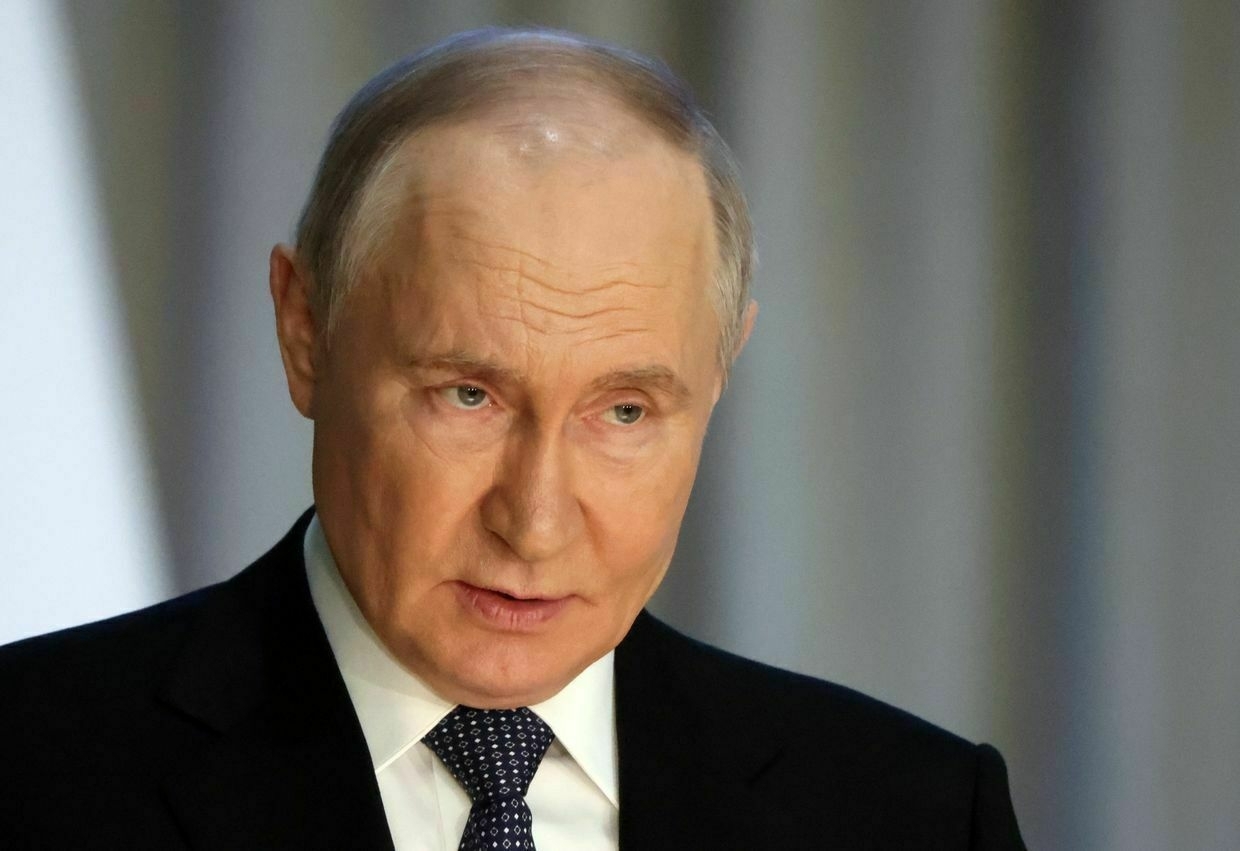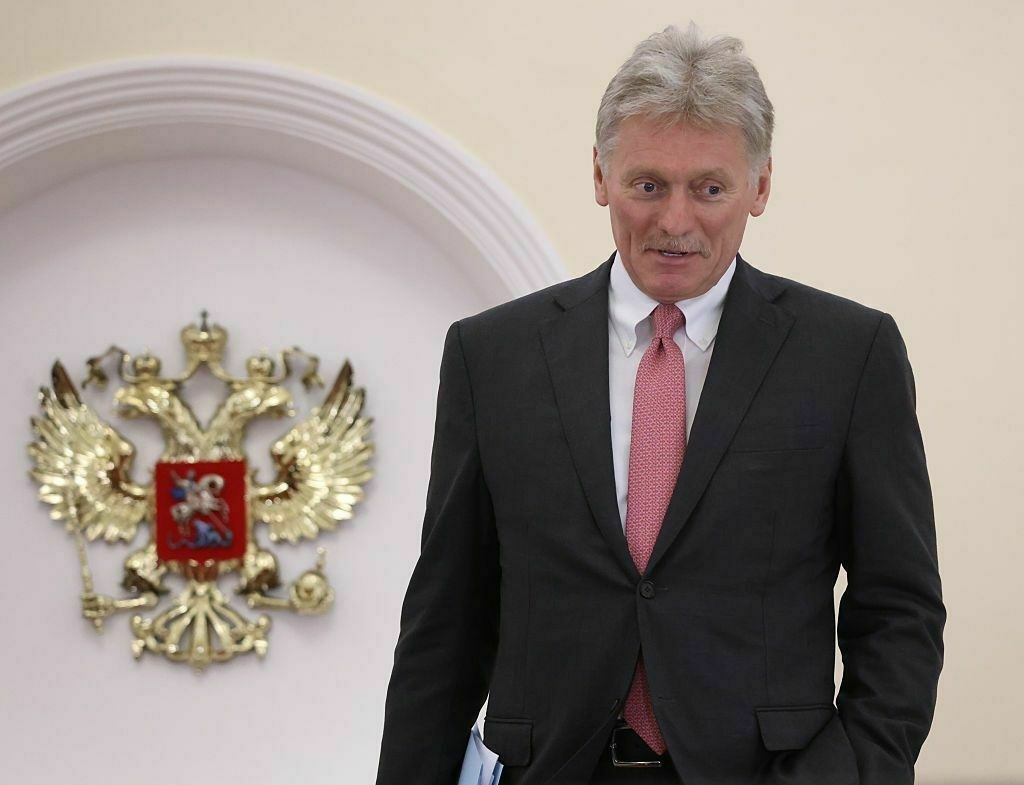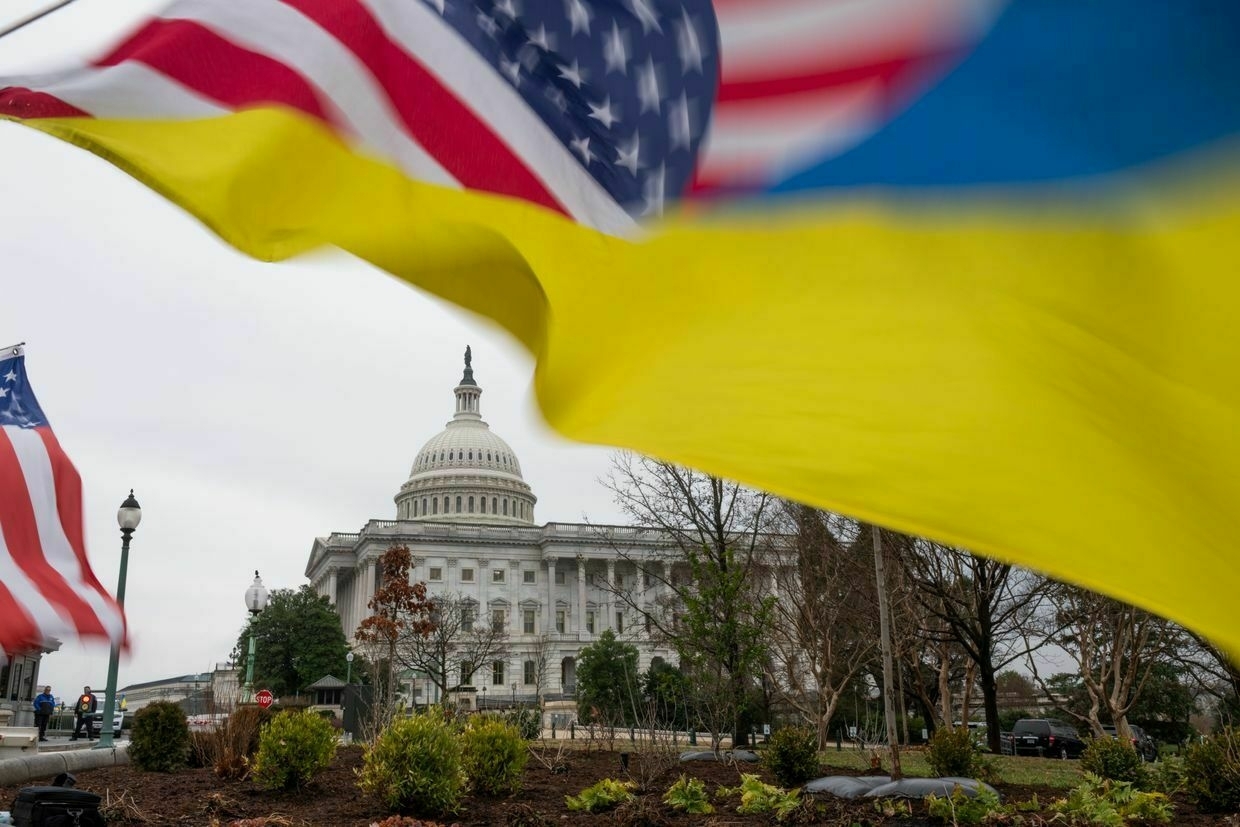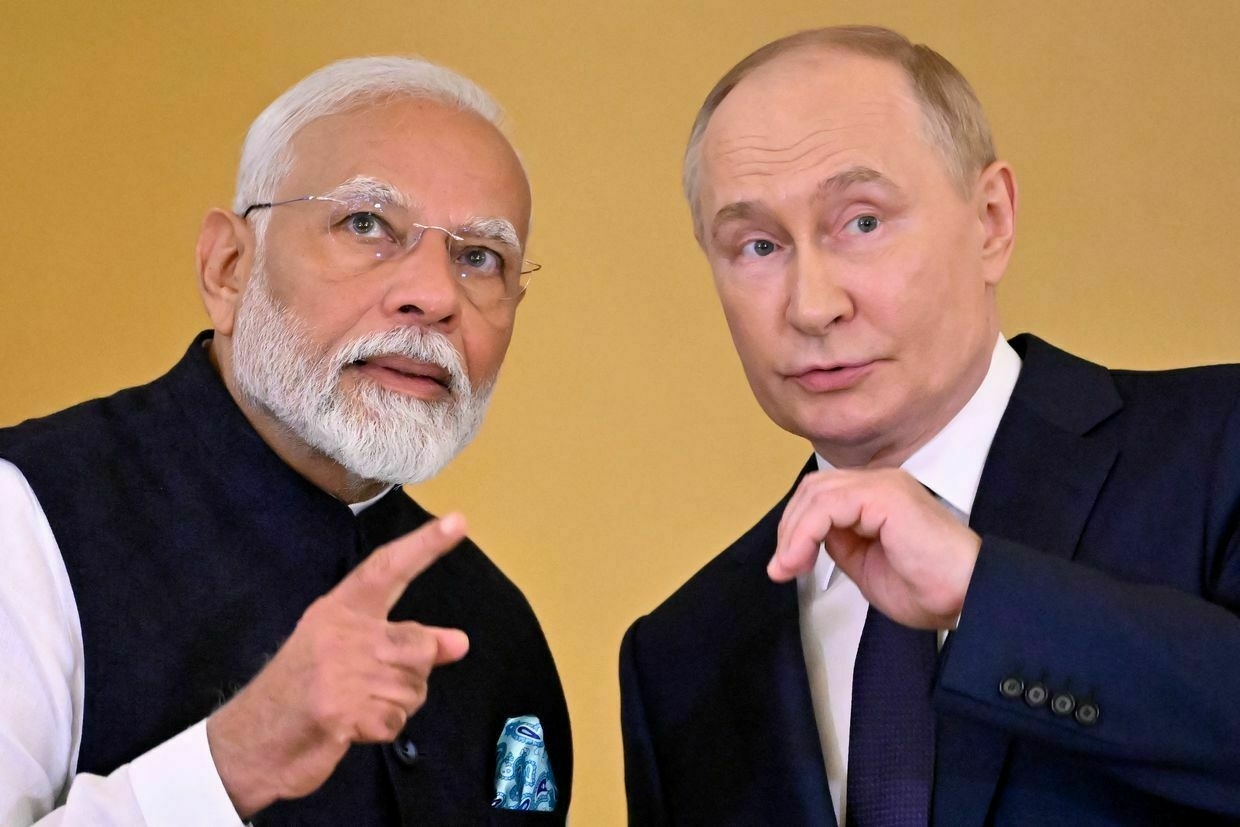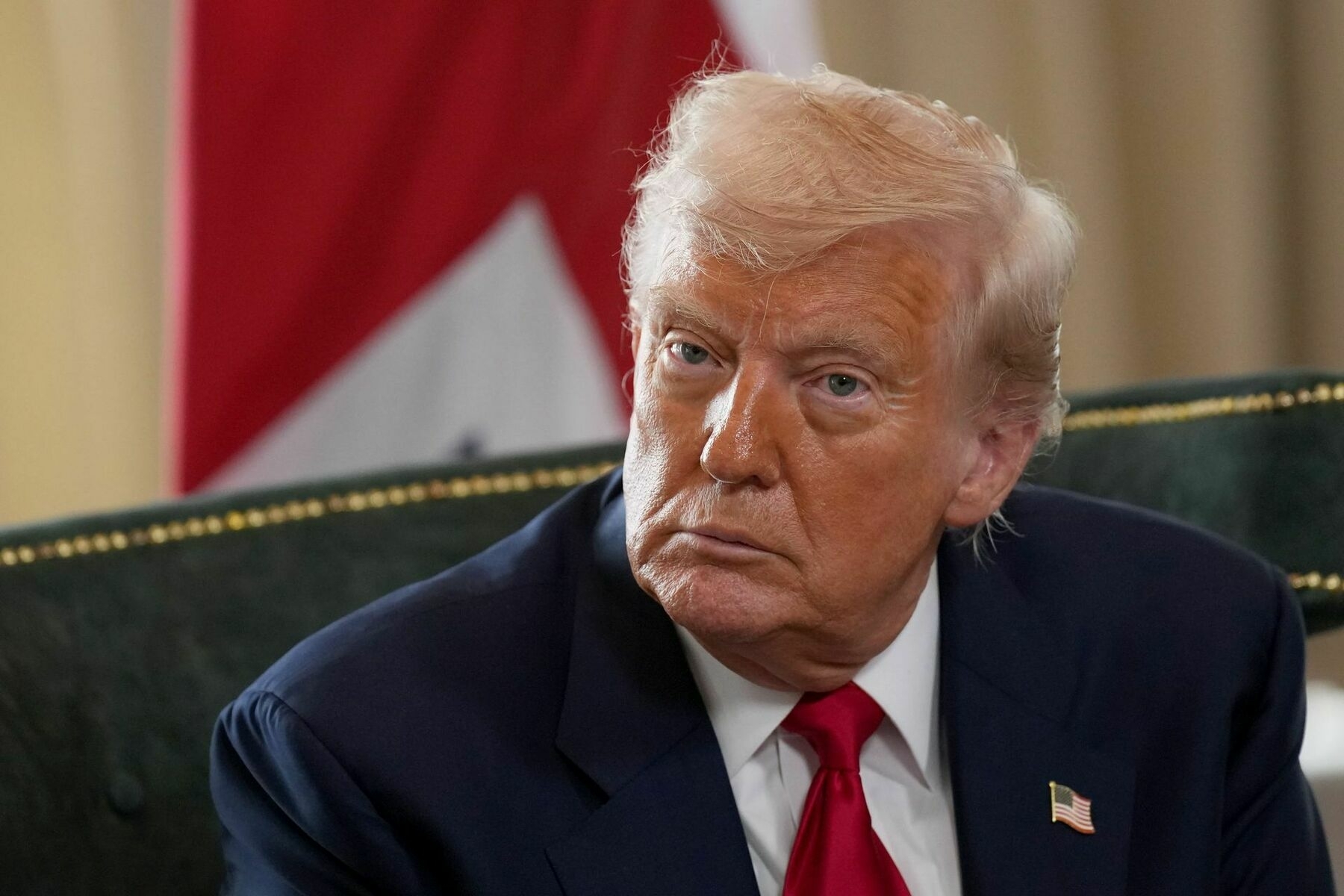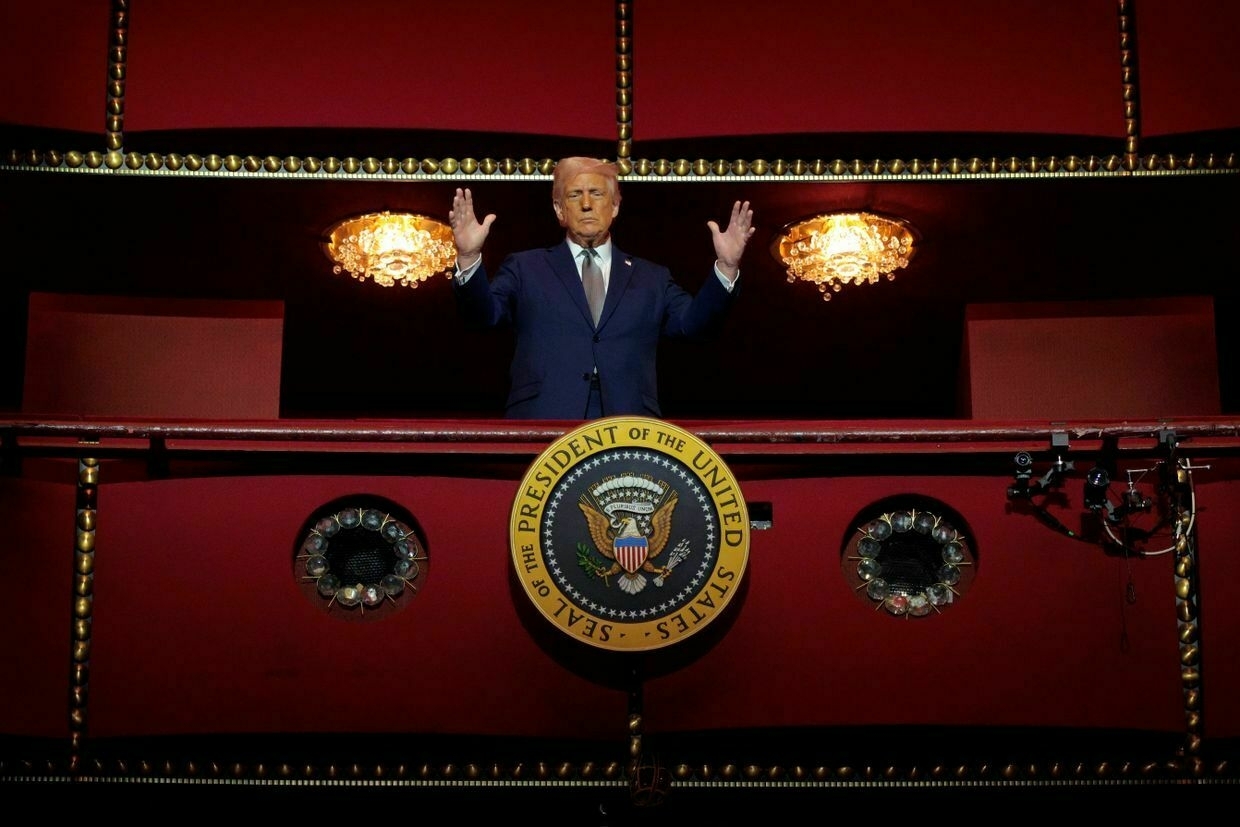-
Kremlin confident in the face of Trump's sanctions threats, doubts real impact, Reuters reports
-
Russia urges caution over 'nuclear rhetoric' after Trump moves US submarines
-
Nuclear sub maneuver! TRUMP tries to PACIFY Putin #shorts
-
Trump’s deadline is nearing: Will peace be achieved? | News Pulse
-
Putin signals willingness to meet Zelensky amid rising US-Russia tensions
Russian President Vladimir Putin is reportedly prepared to meet with Ukrainian President Volodymyr Zelensky for talks, subject to certain conditions that necessitate preliminary work at the expert level, according to Kremlin spokesman Dmitry Peskov. The highly anticipated meeting, however, will not take place immediately.
Russian news agency RIA Novosti reported the potential for a Zelensky-Putin meeting, signaling a significant diplomatic development after recent international tensions.
Peskov has reiterated that a meeting between Vladimir Putin and Volodymyr Zelensky requires "expert-level" work, although the Russian leader does "not rule it out."
"All the preparatory work for such a meeting has not been completed yet. I want to remind you that the president himself constantly does not rule out the possibility of holding such a meeting after the necessary work has been done at the expert level and the proper distance has been overcome," Peskov said in response to a question about a possible meeting between Vladimir Putin and Volodymyr Zelensky.
Zelensky has long insisted on the necessity of a personal meeting with Putin to end the war. Here's what the Kremlin's press secretary has been saying about such a meeting over the past three months.
The announcement comes just three days following U.S. President Donald Trump's comments regarding the deployment of two nuclear submarines to Europe. Peskov emphasized the need for careful handling of nuclear topics and confirmed that Russia remains committed to nuclear non-proliferation. He clarified that Trump's remarks should not be interpreted as an escalation but rather as addressing "sensitive topics that elicit emotional responses." Peskov reiterated Russia's preference for "diplomatic resolutions over warfare."
"In this case, it is clear that American submarines are already on duty, a continuous process. Generally, we'd prefer not to be drawn into this polemic and would rather refrain from commenting," the Kremlin spokesperson concluded.
A statement from the U.S. President Donald Trump appeared, after former Russian President and current deputy head of the Security Council, Dmitry Medvedev, issued nuclear strike threats referencing the "Dead Hand" which gets activated in response to Western nuclear threats. The White House, however, insists that such threats will not be tolerated, with Trump reiterating the positioning of two nuclear submarines in Europe.
On Monday, August 4th, Trump reiterated that the submarines are strategically placed, although precise locations remain unspecified. Additionally, the American President mentioned that his special envoy, Steve Witkoff, might visit Moscow around August 6-7.
On August 1st, Putin announced that Russia had begun mass production of Oreshnik missiles.
-
Trump says envoy may visit Russia ahead of peace deal deadline
-
Russia, China conduct joint drills in Sea of Japan
-
Trump aide accuses India of financing Russia's war in Ukraine
-
This is no coincidence: is the Kremlin retaliating for Trump's remarks? #shorts
-
Ukraine's strategy: Trump's ultimatum, Russian terror, and countermeasures | Wrap-Up Analytics
-
Trump runs out of patience with Russia | Ukraine This Week
-
AI will slash, burn the journalism field
Let’s start with a thought experiment: If you gave the leading AI models every single song from 1990s hip hop, would it be able to eventually invent 2000s hip hop?
I’ve been thinking more and more about artificial intelligence lately, especially because the world around me seems increasingly filled with AI-generated piles of word-slop and fake video.
Have you noticed that too?
The Counteroffensive is not just a publication, it’s a mission. We create human-centered writing as a storytelling device. But a core responsibility is the training of the next generation of young reporters. It’s my hope that they will go out and tell stories of people fighting against authoritarianism for the rest of their careers.
And so with that mission in mind — and our imperative to build an audience to support it — I’ve been thinking about how artificial intelligence will tear apart the journalistic field and make it anew.
After all, writers and authors are the fifth most-vulnerable industry to being replaced by AI, according to a Microsoft report out this week.
In a time when you can generate thousands of words with just a few keyboard strokes, I think both reporters AND readers have an obligation to vote with their feet.
Reporters need to adapt to the times to create genuinely creative work; Readers, too, have power. Where you spend your money determines which voices survive.
What follows is half-manifesto, half-appeal. A pledge about the kind of journalism we’ll be producing, and a challenge for you to support only the writing that adds genuine value in the world.
The future will involve fewer writers, and those that manage to make it a career will need to fill gaps that artificial intelligence simply cannot.
How you spend your $ on information will accelerate or decelerate this change — and whether creative voices thrive.
We hope you see a) evidence of these concepts in our work and b) support us as we strive to fulfill these goals.
Bottom line up front: support reporters in the field, not opinion pundits or influencers.
On-the-ground information-gathering
Artificial intelligence, by its nature, synthesizes existing information to produce conclusions, analyses and summaries. Right now, it cannot go out and find *new* information from the real world.
The Counteroffensive has always been an in-the-field type of publication. You’ll notice that almost none of our journalism involves writing about what politicians or CEOs announce. We write by going out to do irreplaceable on-the-ground reporting — often at great personal risk and sacrifice.
Contrast that with those who simply rewrite press releases or summarize what public figure X has said. AI will eliminate the vast majority of those writing roles. Hockey scores, what Trump tweeted, stock market closing data — those jobs will all disappear.
I always tell the journalists on our team: “If you find yourselves at a place where there are a ton of other reporters, leave. You’re at the wrong place.”
And so it’s imperative that our writers focus on generating exclusive, indispensable information by asking questions others don’t, and getting answers others can’t.
But to survive: we need you to direct your support to this kind of writing!
Opinion is cheap; in the post-AI world, it will only be a filter
Opinion has always been cheap. Not only does everyone have one, but the rise of social media already meant that anyone with an internet could broadcast their personal views to the world.
However, it used to be that if you wanted to read a considered argument of substantial length, you could still rely on magazines, blogs and news websites to help curate opinion articles. They could block out the dumbest, laziest takes.
But nowadays, if you go to ChatGPT and ask it to write an essay on pretty much any argument, it will spit out hundreds or thousands of words. Length is no longer a filter.
Sometimes it puzzles me how many people pay for influencer takes and opinion articles. War correspondence is both more expensive to produce than a pundit sitting comfortably behind a laptop (greater need), and fills a gap by generating new information that would otherwise not be created by anyone (greater value).
In the future, opinion will merely be the lens through which we view information gathering.
You don’t come to The Counteroffensive to read an essay about how Russia is bad and Ukraine’s self-defense is just. But you might come to our publication because you wonder, “I wonder, how is The Counteroffensive’s pro-democracy worldview is being applied to news-gathering and storytelling around this latest breaking news event?”
The only opinion worth paying for is the kind grounded in reporting no one else has — shaped by where you’ve been, who you’ve talked to, and what you’ve seen.
The need to constantly innovate and evolve
Let’s return to the question that I used to start this piece. ChatGPT can summarize the elements of 1990s hip hop, but it cannot generate the next era of hip hop without human intervention.
That human intervention consists of experimentation around groundbreaking methods, themes and questions. It consists of lived experience. We humans can be curious in ways that AI cannot be. We can take paradigm-shifting steps.
The Counteroffensive has tried experimenting in new ways: such as by broadcasting our editorial meetings for our entire audience so you get a sense of how we organize and brainstorm behind the scenes.
In fact, our entire publication is an experiment: can an independent foreign reporting bureau financially sustain itself in a war zone, even as big news corporations scale back?
We can either adapt or we won’t be here next year.
It’s our hunger and commitment to constantly create new forms of journalism that will help us thrive.
If we want a world where war reporters aren’t replaced by algorithms, we need a model that supports field journalists.
Neither influencers nor algorithms can bear witness. They can't verify, can't evolve, can't take personal risks, and can't fundamentally surprise you.
I had a tough conversation this week with the folks who work at Substack. They told us that we are really struggling with our paid conversion rate.
While 3 percent of our readers are paid subscribers, fully 97 percent don’t pay!
It’s not a sustainable figure. In order to provide most of war zone journalism for free — as we currently do — we need those who can afford to support us to step up.
What’s the bottom line? Support The Counteroffensive over those who shout their opinion on social media. Back in-the-field reporters taking personal risks over online influencers.
And hold us accountable to creating world-class journalism that is evolving with the times.
Contribute to the discussion! Let me know what you think about my arguments in the comments section below.
Stay safe out there.
Best,
Tim -
Senate leaves without sanctions vote as Republicans urge more pressure on Russia, The Hill reports
-
India to keep buying Russian oil despite Trump threats, NYT reports
-
US nuclear submarines 'closer to Russia', Trump says
-
Trump threatens China! EU increases arms funding
-
Ukraine war latest: 'Words are very important,' — Trump orders nuclear submarines deployed after Medvedev's threats
- 'Words are very important,' — Trump orders nuclear submarines deployed after Medvedev's threats
- Zelensky urges direct leader-level peace talks as Putin blames 'excessive expectations'
- As death toll reaches 31, Russia's attack on Kyiv becomes most deadly on capital this year
- 20,000
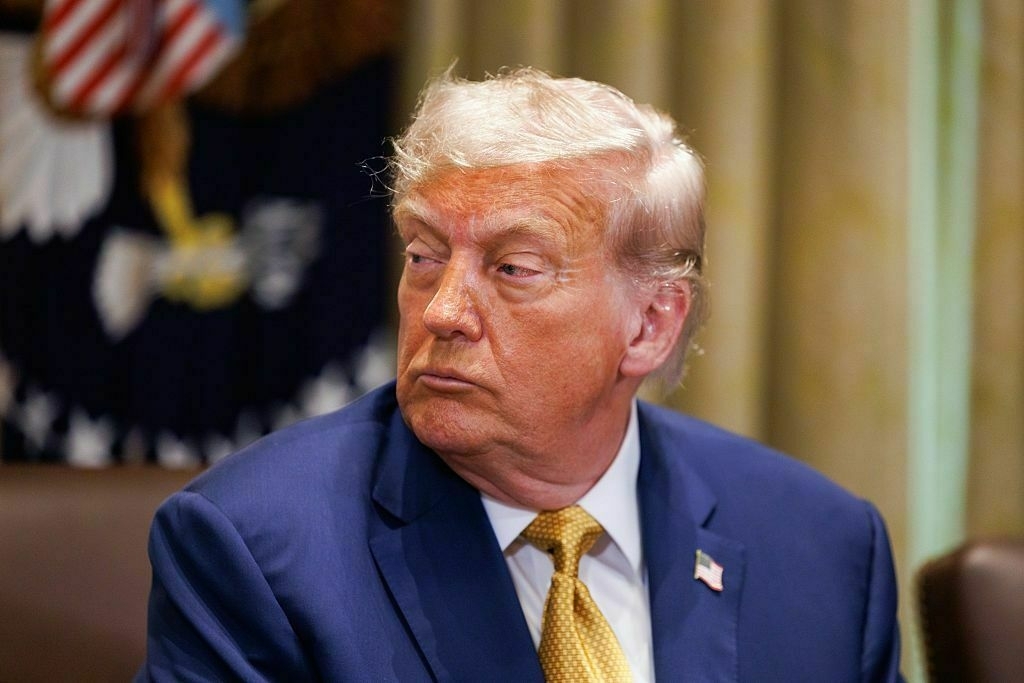
-
Moscow proposes vague new peace talks format as Trump's rhetoric hardens further
-
'Words are very important,' — Trump orders nuclear submarines deployed after Medvedev's threats
“Based on the highly provocative statements of the Former President of Russia, Dmitry Medvedev, who is now the Deputy Chairman of the Security Council of the Russian Federation, I have ordered two Nuclear Submarines to be positioned in the appropriate regions,” U.S. President Donald Trump wrote on Truth Social.
-
Trump's India tariffs show Russia's allies 'he will act' if Ukraine ultimatums ignored, experts say
U.S. President Donald Trump India tariffs have shown Moscow's allies that he will follow through with his threat to impose secondary tariffs on countries who purchase Russian oil, though doubts remain about the practicalities of implementing them, analysts have told the Kyiv Independent.
Escalating pressure on countries
